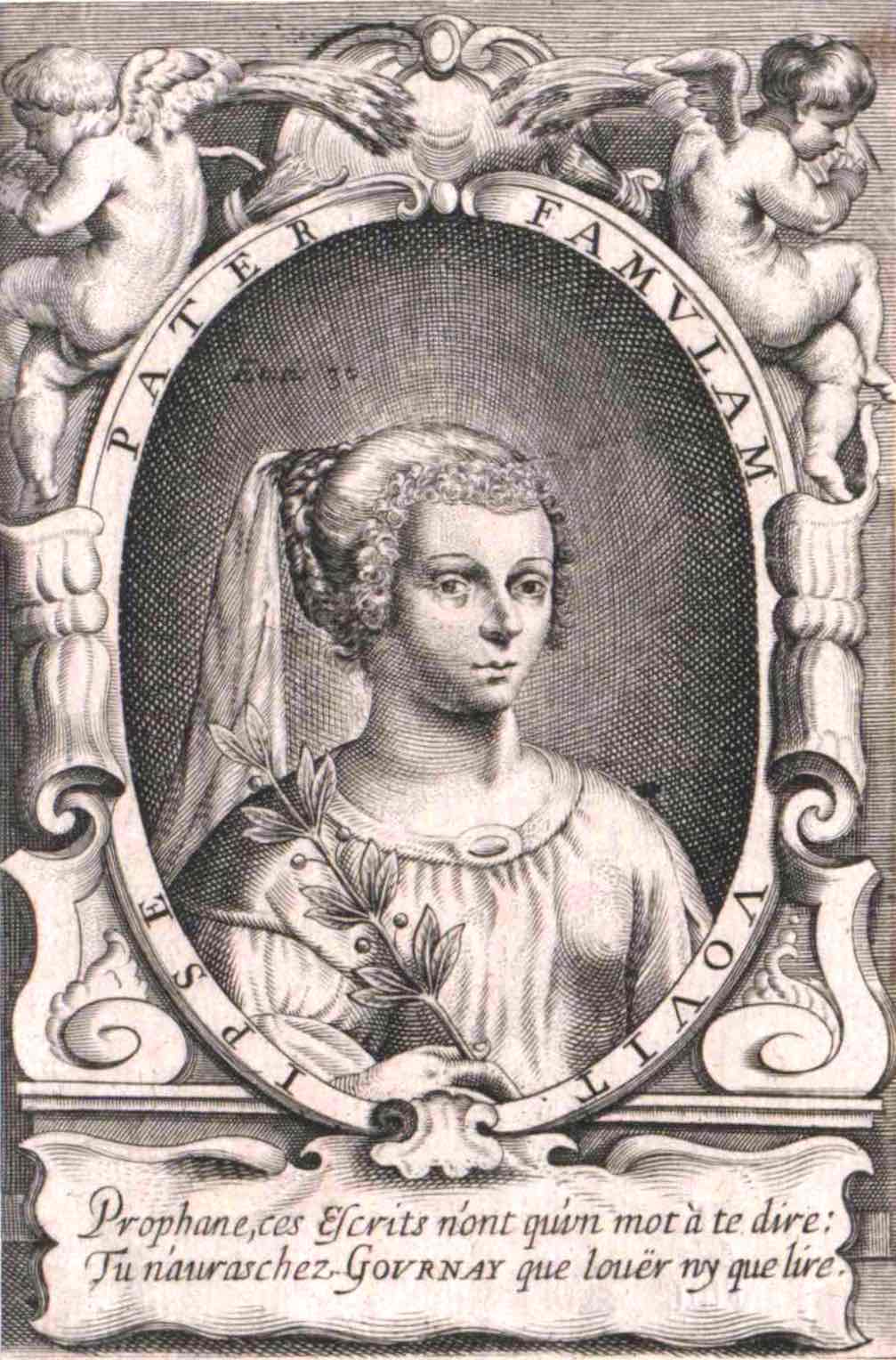415. The Tenth Muse: Marie de Gournay
Marie le Jars de Gourney, the “adoptive daughter” of Montaigne, lays claim to his legacy and argues for the equality of the sexes.
Themes:
• R. Hillman and C. Quesnel (trans.), Marie le Jars de Gournay: Apology for the Woman Writing and Other Works (Chicago: 2002).
• F. Rigolot (ed.), R. Hillman and C. Quesnel (trans.), Preface to the Essays of Michel de Montaigne by his Adoptive Daughter, Marie le Jars de Gournay (Tempe: 1998).
---
• G. Devincenzo, Marie de Gournay. Un cas littéraire (Paris: 2002).
• M.C. Horowitz, “Marie de Gournay, Editor of the Essais of Michel de Montaigne: A Case-Study in Mentor-Protégée Friendship,” Sixteenth Century Journal 17 (1986), 271-84.
• M.H. Ilsley, A Daughter of the Renaissance: Marie le Jars de Gournay, Her Life and Works (The Hague: 1963).
• I. Krier, “Souvenirs sceptiques de Marie de Gournay dans l'Égalité des hommes et des femmes,” Clio 29 (2009), 243-57.
• M. Tetel (ed.), Montaigne et Marie de Gournay (Paris: 1997).






Comments
The Future...
Hey Peter, I wanted to start by saying how happy I am to have discovered your podcast and book series. I have just finished the second book and am hoping to have all the other books finished before the release of Africana Part 1.
I was wondering how the rest of the "Western/European" side of the series will play out. What will come after the Reformation and where do you plan on wrapping up this part of the series?
In reply to The Future... by Jack
The future
Thanks, glad you are enjoying the series! The plan for the 17-18th centuries is to go around Europe in big (book-sized) chunks: first France and the Netherlands, then Britain and early US, then Germany. With forays into neighboring areas, e.g. Eastern Europe while doing Germany. That would take a long time so I don't really have firm ideas yet about how I would tackle the 19th century.
There are costs and benefits to doing it this way as opposed to chronologically but all of Europe at once; the reason I want to do it geographically is that it will help highlight the historical context, and it breaks the huge amount of material into manageable chunks. But it will mean sometimes I'll have to allude to figures who are exerting influence but haven't been covered yet, e.g. Leibniz while doing French Enlightenment.
Context
Context is everything! So geographic structure sounds sensible. I'm still addicted to the pods, well done - a wonderful achievement.
In reply to Context by Tony Kinder
The pods
Thanks! I think I might be addicted to producing them as well...
In reply to The pods by Peter Adamson
Phew !
Good to hear about your addiction Peter ! While it always sounds like you’re enjoying yourself, there’s always the fear of losing the source of your listeners addiction, due to burnout (and waiting for the afrofuturism episode with bated breath !). Also, always love how adroitly you double back, e.g. the couple of rounds between Pyrrho and Cicero in the French scepticism episode.
Novel about de Gournay
There‘s a great, but small novel by Jenni Disky on Gournay, which I really liked: Apology of the Woman Writing.
It focuses on what a misogynist culture does even to the minds and souls of the people who don’t accept that misogyny as truth about women. Very well written and very pitiless.
Add new comment